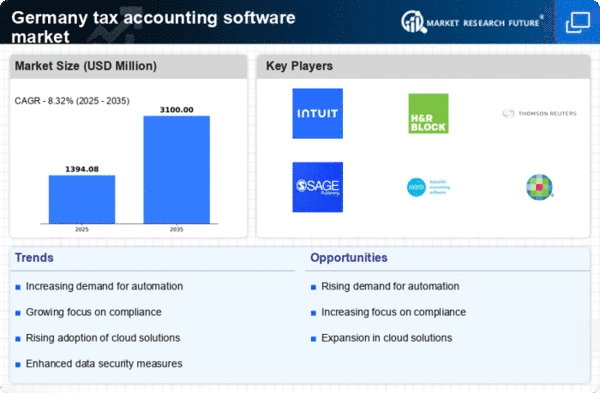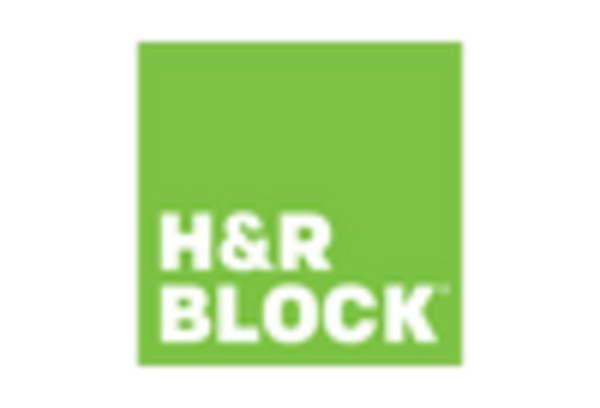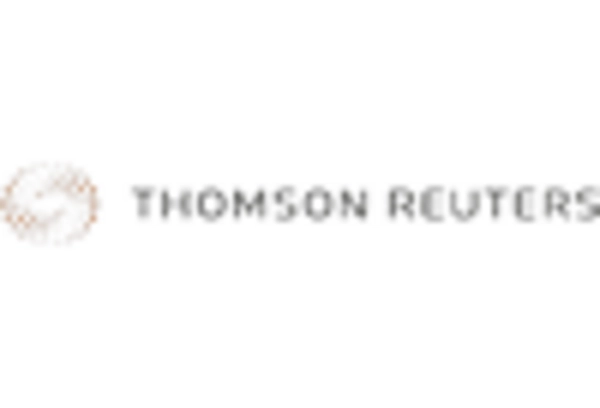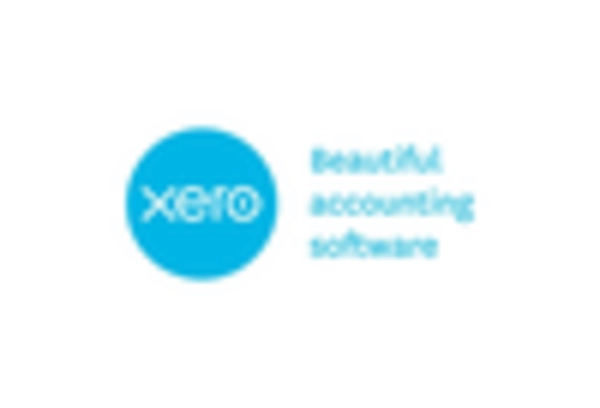Growing Demand for Automation
The tax accounting-software market in Germany is witnessing a growing demand for automation features. Businesses are increasingly recognizing the value of automating repetitive tasks such as data entry, tax calculations, and report generation. This trend is particularly pronounced among larger enterprises, where the volume of transactions can be substantial. As of 2025, it is projected that automation could reduce the time spent on tax-related tasks by up to 40%. This efficiency gain is driving companies to invest in advanced tax accounting software that offers robust automation capabilities. The ability to minimize human error and enhance productivity is a key factor propelling the growth of the tax accounting-software market, as organizations strive to allocate resources more effectively.
Rising Cybersecurity Concerns
In the context of the tax accounting-software market in Germany, rising cybersecurity concerns are emerging as a pivotal driver. With the increasing digitization of financial data, businesses are becoming more aware of the risks associated with data breaches and cyberattacks. As of 2025, approximately 65% of companies in Germany are prioritizing cybersecurity measures in their software selection process. This heightened awareness is prompting software providers to enhance their security features, ensuring that sensitive tax information is adequately protected. Consequently, the focus on cybersecurity is shaping the development of tax accounting software, as organizations seek solutions that not only meet their functional needs but also safeguard their data against potential threats.
Regulatory Compliance Pressure
The tax accounting-software market in Germany is experiencing heightened pressure due to stringent regulatory compliance requirements. The German government has implemented various tax laws and regulations that necessitate accurate reporting and timely submissions. This has led to an increased demand for software solutions that can ensure compliance with the latest tax codes. As of 2025, approximately 70% of businesses in Germany are utilizing tax accounting software to navigate these complexities. The need for real-time updates and automated compliance features is driving innovation within the market, as companies seek to avoid penalties and streamline their tax processes. Consequently, the regulatory landscape is a significant driver for the growth of the tax accounting-software market, compelling software providers to enhance their offerings to meet these evolving demands.
Increased Focus on Data Analytics
The tax accounting-software market in Germany is increasingly characterized by a focus on data analytics capabilities. Businesses are recognizing the importance of leveraging data to make informed tax decisions and optimize their financial strategies. As of 2025, it is estimated that around 50% of tax accounting software solutions now incorporate advanced analytics features. This trend allows companies to gain insights into their tax positions, identify potential savings, and enhance compliance efforts. The integration of data analytics into tax accounting software is thus becoming a critical driver for market growth, as organizations seek to harness the power of data to improve their tax planning and reporting processes.
Digital Transformation Initiatives
In Germany, the ongoing digital transformation initiatives across various sectors are significantly influencing the tax accounting-software market. Businesses are increasingly adopting digital tools to enhance operational efficiency and reduce manual processes. As of 2025, it is estimated that around 60% of small and medium-sized enterprises (SMEs) in Germany have integrated some form of tax accounting software into their operations. This shift towards digital solutions is not only improving accuracy in tax calculations but also facilitating better data management and reporting capabilities. The tax accounting-software market is thus benefiting from this trend, as companies seek to leverage technology to optimize their tax functions and improve overall business performance.
















